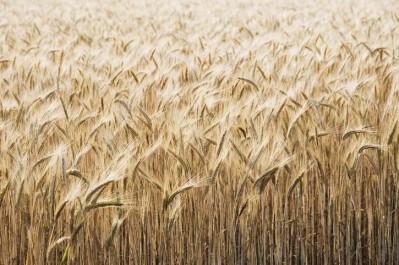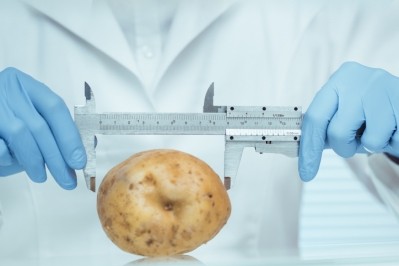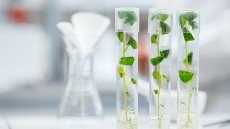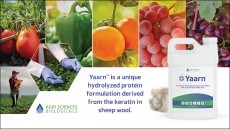Plant breeders want unified global policy on genome-edited crops to boost food security

A survey by the International Seed Federation (ISF) has gathered insights from experts across seven regions.
Those surveyed called for the adoption of consistent global policies on plant breeding innovation, specifically on the use of new breeding technologies like genome editing.
The ISF said such a move would help bolster global food security in the face of the growing impacts of climate change – which was cited as the greatest challenge facing the sector by almost 45% of respondents. It would also enable sustained investment in agricultural research and develop the agricultural workforce.
“It is critical that regulations applicable to plant breeding innovation are risk proportionate, science-based, and adaptable to reflect evolving scientific knowledge as well as the application of that knowledge,” an ISF spokesperson told AgTechNavigator.
The group believes that consistent regulatory policies will “motivate continued research and incentivise plant breeders to continue developing the best plant varieties using all the tools available to them for the benefit of farmers and society at large”.
Via technologies such as CRISPR and genome editing, plant breeders are creating a new population of plants for breeding, the ISF said.
In 10-20 years, this new technology will significantly speed up the breeding processes and expand product portfolios to meet needs related to climate change and food security. It will “produce more crops on less land and using less water and fertilisers”.
This will include drought-resistant fruits and vegetables and consumer friendly products like non-browning lettuce and pit-less cherries and fruits, which also help reduce food waste.
Seed breakthroughs are already supporting countries to confront these challenges, according to the ISF. For instance, hybrid varieties of rice use up to 50% less water, so rice harvests are less vulnerable to the impact of drought and heat waves. These will be increasingly important, it believes, especially as countries face climate impacts – from Japan’s rice shortage to India’s fodder losses, Botswana’s record drought.
Crop breeding breakthroughs expected
While many countries are working to establish clear guidelines and regulations for new breeding technologies, the global regulatory landscape remains fragmented, with significant differences between countries.
In the survey almost 75% of participants warned that inconsistent regulations pose a threat to the seed sector’s ability to support global food security. But more than half said they believe that global harmonisation of regulations is likely over the next two decades.
More than 90% also expect to see innovations that breed more resilient and productive varieties of key crops within two decades. For example, the ISF expects microplastic-free seed treatments will be the standard in seed treatments in 10-20 years.
It also says that through different breeding techniques, plant breeders are developing resistant varieties targeting new and emerging pests and diseases, exacerbated by rising temperatures and extreme weather events like floods and droughts. “Tomorrow’s foreseen problems are being solved today, as it takes, on average, 10-15 years to bring a new, improved plant variety to market,” it said.
It also expects that wider deployment of AI, Internet of Things (IoT) sensors, drones, and data analytics will facilitate an increasingly targeted approach to crop health monitoring and surveillance. This will effectively reduce the use of pesticides and help decrease agriculture’s environmental impact and allow for more targeted planting cycles based on real-time data on, for example, soil moisture and weather conditions.
Calls for the free movement of seeds
Other demands from the survey include harmonised regulations to ensure the safe movement of seeds while minimising trade barriers. Any trade disruption in seed has direct consequences on food security by limiting farmers’ access to their choice of quality seed.
However, there are currently more than 300 types of seed commodities shipped internationally, with approximately 180 National Plant Protection Offices certifying shipments and a million phytosanitary (plant health) certificates exchanged between exporting and importing countries yearly.
The ISF supports the IPPC ePhyto Solution that aims to digitise this process, saving costs and time for both governments and companies do not need to repeat unnecessary tests.
… and free movement of seed technology
The survey also calls for the smoother transfer of seed technology to less developed countries to ensure food security.
More than 60% of the those surveyed expect crops developed using biotechnology to be mainstreamed in low-income countries in the next 20 years. That’s thanks to public-private partnerships, like the one between ISF and CGIAR.
The ISF also supports companies granting royalty-free transfer of biotechnologies for research and development purposes or a mutually agreed licence fee for commercial purposes, for example, through foundations like the African Agriculture Technology Foundation (AATF), and other joint country-level initiatives like ISF’s Seed Resilience Project in Rwanda, in partnership with NGO Fair Planet.
The seed sector’s greatest contribution to humanity
Seed sector innovation is already credited with sparing millions from famine since the 1960s thanks to the development of semi-dwarf varieties of rice and wheat (developed by American agronomist and ‘Father of the Green Revolution’ Norman Borlaug), which are less susceptible to bending and breaking in the wind.
Around a third of survey participants cited this Green Revolution as the seed sector’s greatest contribution to humanity, with a further 30% highlighting research and development as its crowning achievement.
“Seeds are the starting point of global food security and one of the most important inputs for farmers, determining their harvests, incomes and prospects,” said Michael Keller, secretary general of ISF.
“Plant breeders have made enormous progress in developing new crop varieties with higher yields over the past century. As a sector, we are optimistic that with the right regulatory framework and strong partnerships, we can deliver the innovations needed to overcome the challenges of the next decades as well as the next century.”
“The seed sector plays a fundamental role in feeding a growing population, but it is essential that global regulations and frameworks reflect the reality of a truly global sector,” added Arthur Santosh Attavar, president of ISF and chairman and managing director of Indo-American Hybrid Seeds.
“Plant breeders need adequate protections to incentivise innovation that is balanced against shared access for breeding new varieties. Harmonised, consistent policies can ensure every country has access to the latest seed innovations.”























